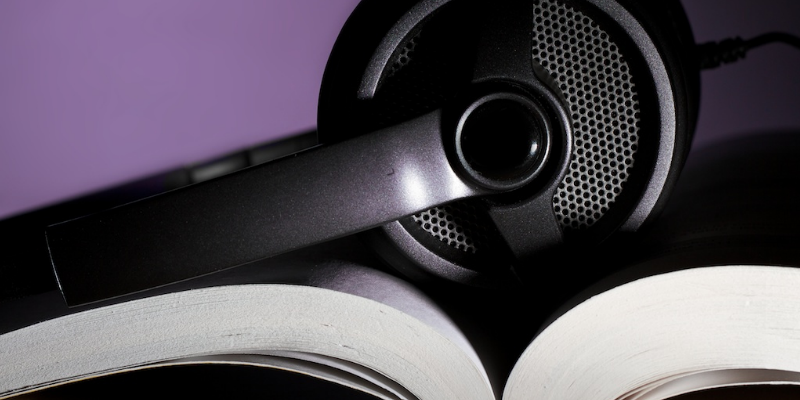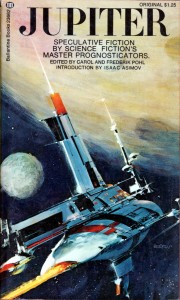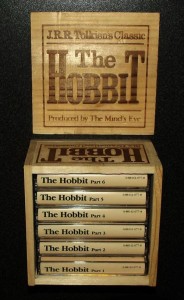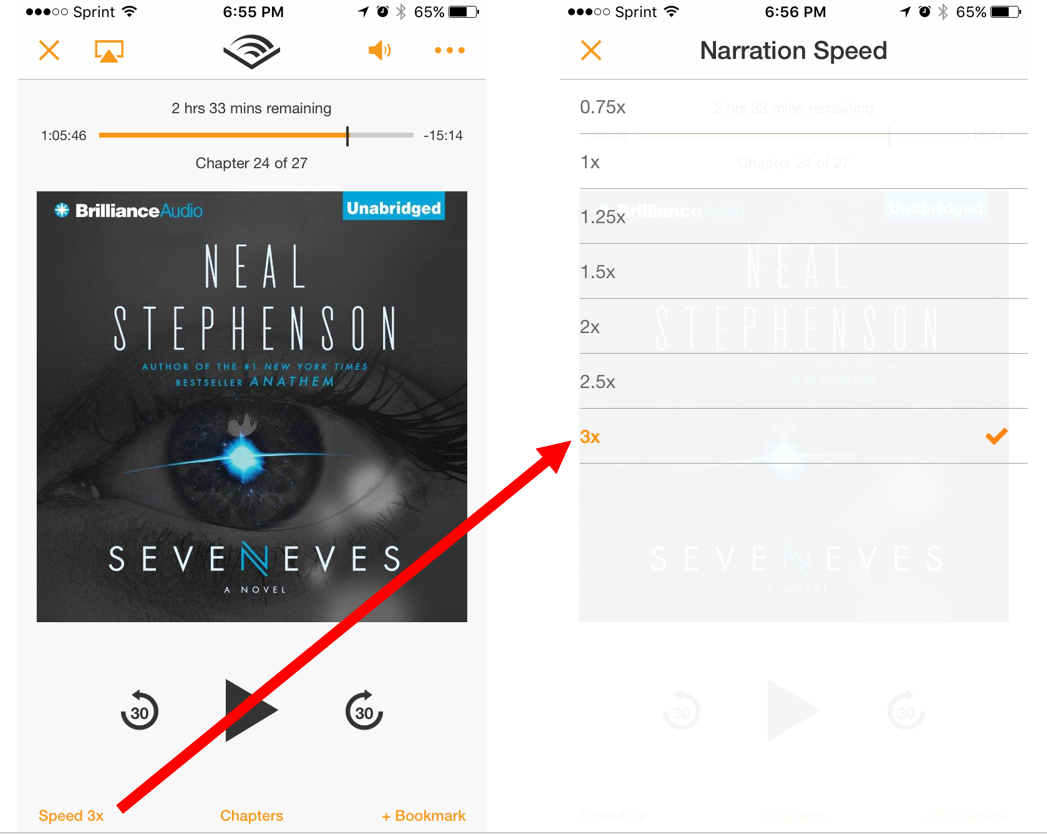
I love books. A lot of my happiest memories are of whiling away long summer hours reading in the backroom of my grandfather’s book store.

But for a few years in grad school, I didn’t read very much. At one point I realized it had been several months–maybe a year!–since I had read a book cover-to-cover. I decided that simply would not do, and I started reading again. (I believe that was about the time I got into Lois McMaster Bujold’s Vorkosigan Saga.) The only other period in my life when I wasn’t reading was the time before I knew how.[ref]For what it’s worth, lots of people brag about how they or their kids start reading at age 2 or 3 or whatever. If it makes you feel any better, I started reading around age 5 or so and I don’t think that I really missed a ton getting an average start. I’m not sure a lot of great works of literature are written for the pre-K demographic. Just saying: a life-long love of learning doesn’t need a precocious start.[/ref]
I stumbled upon Goodreads at about the same time, and I’ve been tracking my reviews on there ever since. I don’t really go in for the social networking aspects of Goodreads. I basically treat it as a convenient reading journal. The best part is being able to look at a chronological timeline of the books I’ve read over the last couple of years. Individual titles or covers will bring me back to places where I was–literally and metaphorically–when I read those books. And all it takes is a glance at my bring the books back to life for me, little anchors that keep me from forgetting all the places that I’ve been.
But by far the greatest change to my reading life has been my subscription to Audible.

I have always loved audiobooks. As a kid, my go-to for getting through the flu was a dramatization of The Hobbit on cassette tapes stored in a small, wooden box. Later on, I acquired a CD dramatization of The Lord of The Rings (way before the movies were out) that I also listened through a couple of times.[ref]I tried to listen to them in the car once, but my wife stomped on that pretty hard. The 70s cheesiness that I was oblivious too was intolerable for her. Oh well.[/ref] The first few Harry Potter books (this was before the last ones had come out) also helped me get through hours of tedious desk work back in the day. But back in the day, an audiobook could set you back $50 or more, easily, and there was no way I could afford that as a replacement for used books and $7 paperbacks.
Audible has changed that, however. For $15/month, you get one audiobook. That’s good, but it’s not great. In addition, however, you can buy 3 credits for about $36 (so, more books for about $12/each.) Best of all, however, are their promotions. They send out a daily deal that offers a random book for $3-5 and frequently have other sales at $5 each. Most of these books will probably not suit your fancy, but even if only 5%-10% of them do, then you’re going to be picking up at least a couple more books every month for basically pocket change. Now, the economics of buying audiobooks being to make sense!
This is the secret to how I “read” over 100 books last year, and how I plan to get through about 120 in 2016. But you might have some questions, so let’s talk about how to get the most out of your Audible subscription (or similar) along with some unexpected pros and cons.
First: learn double-speed, love double-speed
You might not even realize this, but most audiobook apps (including Audible and iTunes) have the ability to increase narration speed while keeping the narrator’s voice at a level pitch (so you don’t end up listening to chipmunks). The math here is pretty obvious: faster narration means you get through books faster. Right now, the longest book in my Audible library is Brandon Sanderson’s monstrous Words of Radiance (Stormlight Archive, The), which clocks in at over 48 hours, followed by Neal Stephenson’s Seveneves
(almost 32 hours) and then Susan Wise Bauer’s The History of the Ancient World
(about 27 hours). Most books fall in a more normal range of about 12-16 hours each, however, which means that double-speed means it takes only 6-8 hours to get through a typical book. And that’s an amount of time most people can probably find in one week.
Now, if you try to skip straight to double-speed, you’re going to get frustrated and give yourself a headache. It didn’t even occur to me to speed up the tracks until a friend suggested it. I started at about 1.25x and for a while that was all I could do. Once that was natural, however, I moved up to 1.5x and, after getting used to that, I finally went all the way up to 2.0x.

Unfortunately, that’s the fastest you can go. Don’t get me wrong, if you look at the app you will see a button that claims you can also do 2.5x and even 3.0x, but it’s a lie. They don’t actually speed up the narration beyond 2.0x. I tested this myself back in December 2014 with the iOS version and a stopwatch to confirm, and it’s true. There are no speed increases after 2.0x.[ref]I have no idea why, and the friendly Audible customer service rep did not either.[/ref]
Second: when to listen
The conventional time to listen to audiobooks is in the car, and that’s a great one. I often have to travel in from Williamsburg, VA to Richmond, VA which is about a 1-hour trip (one-way), so every time I get four hours of listening done (remember: double speed). That’s about half a novel. Not bad! But I also work from home many days, and then I’m not in the car at all. So, what are some other good times to listen? Walking the dog is a great one, especially ’cause your dog will appreciate the extra time if you’re not in a hurry to get back. Doing chores is another great one. A lot of annoying things that have to get done (like folding the laundry) become a treat if they’re also your excuse to return to a great book. One of my favorites has also been long-distance runs.
There’s a caveat here, however. Audiobooks can be addictive. I’ve gotten in trouble on more than one occasion because I’ve got headphones in my ears (while I’m doing the chores) and my wife wants to talk to me. This, as you can imagine, is a bad scenario. Anything in life can be taken too far, and audiobooks are no exception. Be sensible about it.[ref]My wife would say that I’m not one to talk, but I’m working on it.[/ref]
Third: what to listen to
I have the most fun listening to enjoyable fiction, but I’ve also found that picking up books for $2-$5 / each makes me interested in things I wouldn’t otherwise be. I’ve gotten into a lot of history this way (most recently: a biography of the Dulles brothers[ref]The Brothers: John Foster Dulles, Allen Dulles, and Their Secret World War[/ref], another of T. E. Lawrence[ref]Lawrence in Arabia: War, Deceit, Imperial Folly and the Making of the Modern Middle East
[/ref], and also a history of the Plantagenets[ref]The Plantagenets: The Warrior Kings and Queens Who Made England
[/ref]). You can also get a lot of Great Courses through Audible, so there’s a ton of great material on anything from quantum physics (I recently listened to a short one on the Higgs Boson) to marketing or music appreciation.
Here’s another caveat, however. When I listen to really, really interesting non-fiction I often like to enter notes into Evernote. And this is where audiobooks are less than amazing. Few things in the world frustrate me more than transcribing 40 or 50 notes from an Audiobook. I’ve done this a lot, and so here are some tips.
When you want to take a note, you can just add a bookmark with a note in the Audible app. Always type a note. Often you will think that it will be obvious when you come back, but the timing of the bookmark is not exact (especially on double speed) and if you have a lot of notes or a very long book, then by the time you come back to get your notes you might have to listen to rather long portions to remind yourself of exactly what you wanted to make a note of. In fact, if the quote is short, you should just try to write the entire quote out in the note field.[ref]Obviously this doesn’t work if you’re driving. Please don’t take notes if you’re driving.[/ref] If it’s not short, at least write the first phrase of the quote. That will make it easy to find.
As for transcription: good luck. For a while I tried reducing the speed to 1x, putting the phone on speaker, holding up to my mic, and trying to let Dragon: Naturally Speaking transcribe it. Results were mixed. Dragon could pick up on a lot of the words, but not everything. It was basically a toss-up whether manually transcribing the whole thing or fixing the mistakes in Dragon’s transcription was faster. Either way, it took about 2 minutes on average for a single note, which–if you have more than a few notes–will get very frustrating.
In other words: if you have something to listen to that you suspect is going to involve a lot of underlining, highlighting, or brain-waves: get it in paper and do it the old-fashioned way.
This doesn’t mean that audiobooks have to be light. I have listened to some great literature this way, books like Angle of Repose or Gilead
, but it does skew towards fiction for me and away from the most interesting non-fiction, which I still prefer to get in hardcopy (or Kindle).
One word of caution, however. The rise of self-publishing has an impact in the Audible ecosystem as well. There’s really no easy way to separate self-published books (which are often abysmal in quality) from traditionally published books (which are only sometimes abysmal in quality). My recommendation is this: If you see something that looks interesting but you don’t recognize it, look up the book on Amazon and check out the editorial reviews. NOT the customer reviews![ref]Those can be faked, and often are.[/ref] The first thing you want to look for is not what the reviews say, but who they are from. Best case? Prominent newspapers like the New York Times or the Wall Street Journal. Next best case? Super-famous authors. Worst case? Authors you have never heard of and/or outlets you have never heard of. It’s not a perfect way to gauge quality–obviously–but it will help you avoid the worst of the nonsense that is out there.
Fourth: did you learn anything?
Some folks will tell you that listening to audiobooks isn’t really reading. Well, sure, literally it isn’t. But I did find a Forbes article that tackled the question: Is Listening to Audio Books Really the Same as Reading? According to the article:
So on an intellectual level, is listening to a book really just as good as reading it?
Pretty much, but it depends on the type of book. Studies on electronic media consumption are still relatively limited, and the audio book genre has been “woefully unaddressed by the academic community in general,” wrote philosophy professor William Irwin in a 2009 essay.
However, even research that predates CDs suggests that reading and listening are strikingly similar cognitive processes. For example, 1985 study found listening comprehension correlated strongly with reading comprehension – suggesting that those who read books well would listen to them well, also. In a 1977 study, college students who listened to a short story were able to summarize it with equal accuracy as those who read it.
“The way this is usually interpreted is that once you are good at decoding letters into sound, which most of us are by the time we’re in 5th or 6th grade, the comprehension is the same whether it’s spoken or written,” explained University of Virginia psychology professor Dan Willingham.
That matches my experience, and so does the rest of the article which qualifies this a little bit by pointing out that some complex text can benefit from being literally read because it lets you easily skip back to re-read difficult sections. However, in my experience, it’s also true that some books are actually better when read. This really worked for Gilead, for example, because as an epistolary novel the narration was a perfect fit.
Speaking of notes, I really do recommend using Goodreads. Trying to go back and re-enter books you already read is a rabbit hole I suggest you don’t try to go down, but writing out reviews of everything you read–and recording the start and end date for each book–is a fantastic project that starts to really pay dividends within a couple of years of starting. Give it a shot.
So, have I sold you on Audible yet? Well, first let me point out to alternatives that might save you some cash. First, check with your local library to see if they let you digitally check out audiobooks. Mine does, and I was really excited. At first. Unfortunately, the particular app I had to use with my local library was the worst-designed thing imaginable. Most egregiously? No option to increase playback speed. That was a dealbreaker for me, and the library’s selection was also pretty meh. Still, you might have more luck. (I’m going to try again when we move to a new area.) Second, you can also check out iTunesU. I listened to some really great courses several years ago when that was getting started (including a fantastic overview of modern cosmology), but eventually these courses started to rely more and more heavily on video which, you know, defeats the entire purpose of an audiobook. There’s probably still a lot out there, however, and a lot is free, so you might want to check that out.
If you are interested in Audible, however, then let me make a suggestion: join Audible.
If you use that link just above to join, I get a little commission. Which is nice. But the real reason I decided to post this today is that Audible is also having a great members-only sale: $4.95 for the first book in a series. I don’t get a commission for that particular sale, by the way. I was just looking through the options, and saw some great ones. If you like sci-fi, then there are some fantastic deals. The Three-Body Problem
won the Hugo last year, and it deserved it. Leviathan Wakes
is the first book in a great sci-fi series that is currently running on SyFy as The Expanse.[ref]The later books are better, but the first one is solid.[/ref]. Golden Son
is my favorite book of 2015. It’s not on the list, but it’s also #2 in a trilogy and the first book–Red Rising
–is on the list.[ref]The last one, Morning Star
, is out on audibook in 4 days![/ref] There are lots of other legitimate books on there as well. Ancillary Justice (Imperial Radch)
took the Hugo in 2015, for example. Revelation Space
, Ringworld (A Del Rey book)
, and The Memory of Earth (Homecoming)
are also all very good sci-fi (or, at least in the case of Ringworld, very famous sci-fi).
So, if you haven’t joined Audible yet, now might be a great time to try. And if you’re already a member, check out that sale.

Your comment about doing housework while listening to audiobooks makes me laugh. I’ve done the same thing so many times only to get a “look” from my wife that suggests I could be a little more present instead off far far away in some galaxy.
Like you I enjoy listening to audiobooks during long runs or workouts that are conducive to earbuds. In fact if I have a good book I’m listening to, I find that really helps motivate me to get up and exercise.
Last, thanks for your recommendation for Golden Son. I got it from your 2015 reading review, and I loved it. Best book for 2015. Now I’m eagerly awaiting February 9th when book three in that series comes out — which I’ll be “reading” through audible.
Your comment about “conducive to earbuds” reminded me of one more suggestion: audiobooks while you swim laps.
You can find water-proofed iPod shuffle’s for about $100 or so that come with waterproof headphones on a super-short cord. You attach the shuffle to the straps of your goggles, put the headphones in, and you’re good to swim your laps while listening to your audiobook. It’s my very favorite way to listen to an audiobook, but unfortunately I haven’t been able to get to a pool recently. We’re moving in July, however, and I am hoping to have access to a pool there and will once again be “reading” my audiobooks underwater. It’s great.
Here’s one like the one that I got: http://www.underwateraudio.com/?gclid=CjwKEAiArdG1BRCLvs_q-IObwxMSJACXbLtzJv-p87DvhukjWHcvjt9G41tJkDziK-d0_PwKzpTUQRoC_Ovw_wcB
Of course, now that I’ve got a LifeProof case for my iPhone 6S, I suppose I could do that, too, but swimming with an iPhone 6S seems a bit ridiculous, even if it is in a waterproof case.
Glad you liked Golden Son!
Have you heard of LibriVox (www.librivox.org)? You can get free audiobook recordings of books that are in the public domain. They are read by volunteers.